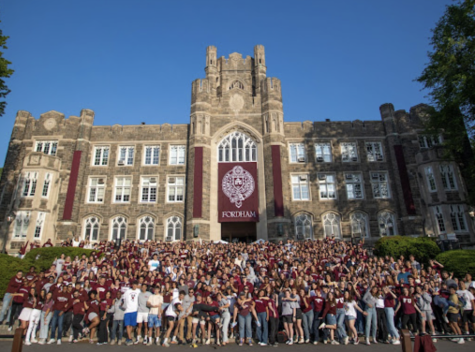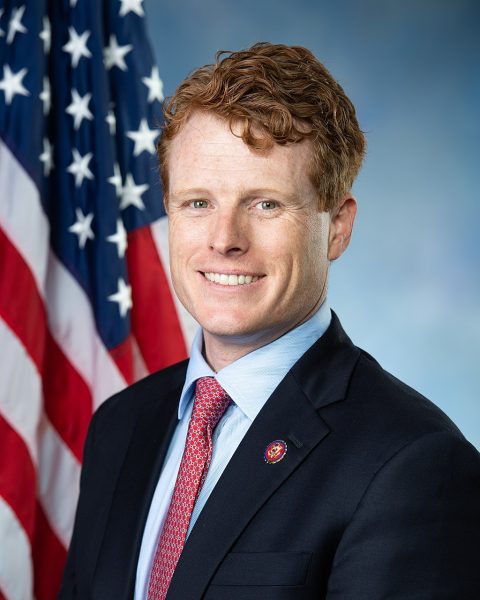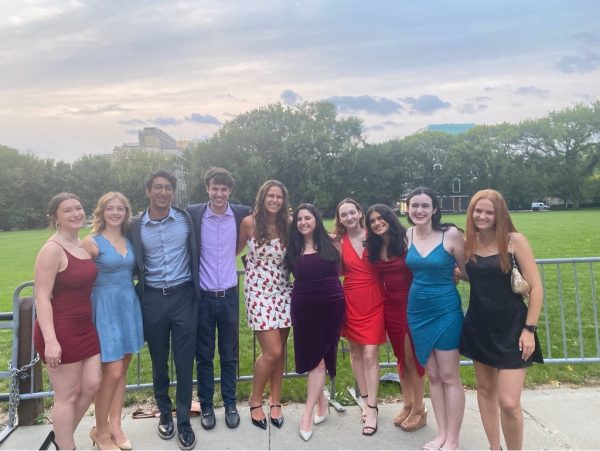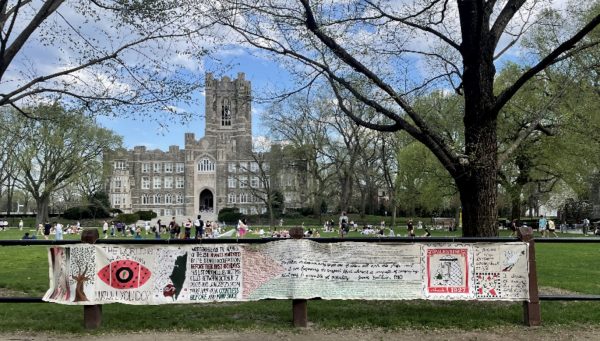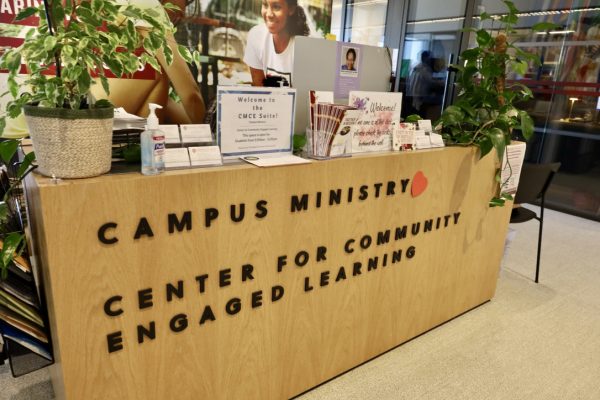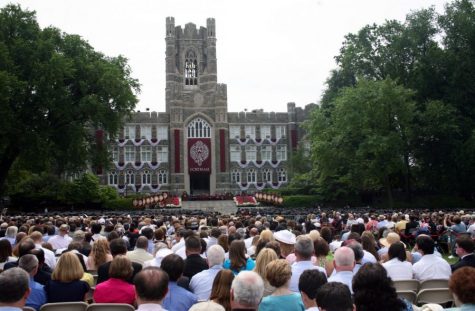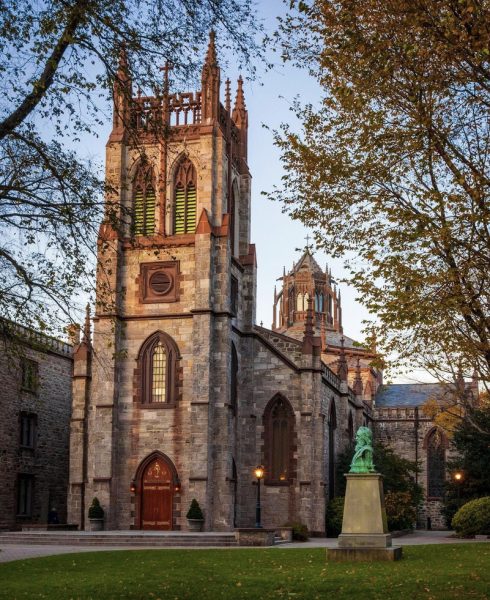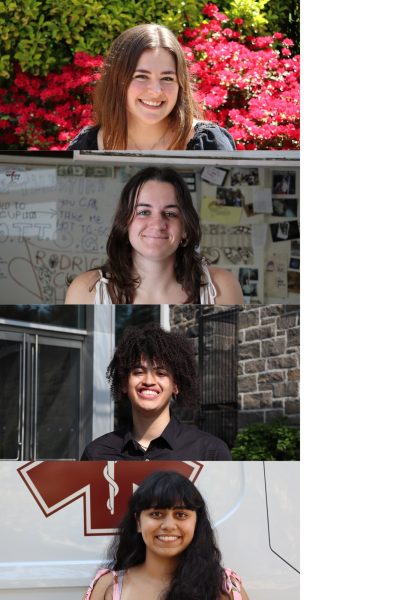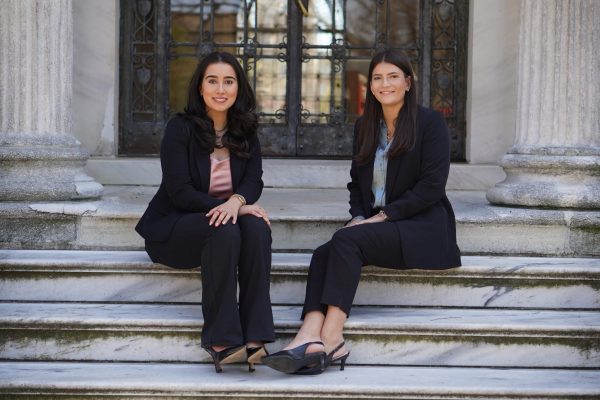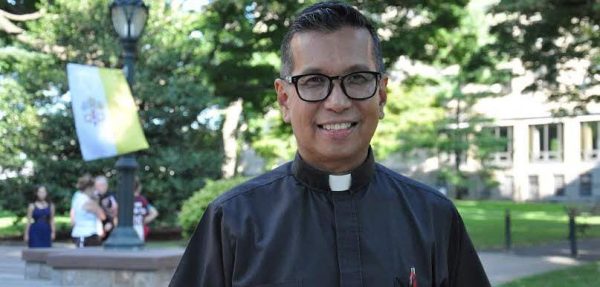USG Joins JSGA in Letter to Congress
United Student Government (USG) joined the Jesuit Student Government Alliance (JSGA) in their letter to Congress.
JSGA, which was founded in 2018, consists of student government presidents from all member institutions of the Association of Jesuit Colleges and Universities (AJCU). It is a platform for its members to advocate for and collaborate on different issues.
JSGA’s letter asked Congress to allow students to register to vote using college IDs instead of state ones, and they asked for approval from Fordham’s student government. Fordham’s USG voted 13 in favor, 10 against and 1 abstaining.
Santiago Vidal, FCRH ’24, president of USG, explained that JSGA “brings together all the [Jesuit] universities in legislation.”
Right now, the letter is currently going around the other 28 universities that are part of AJCU.
The letter was originally made by the student government president at Creighton University, Francisco Pastor-Rivera.
He proposed to the JSGA to move forward with a letter to Massachusetts Senator Elizabeth Warren, who is one of the senators presenting the Youth Voting Rights Act, to accept student IDs, but also to make the college campuses polling places. “It is an idea to expand the Youth Voting Rights Act,” said Vidal. “It is joining [the act] but also suggesting a couple of changes, which we can see on the letter. It is both.”
According to Vidal, it took three weeks to pass through Fordham’s USG, and there are other universities that have already joined, such as Creighton University, Springhill College, Gonzaga University, John Carroll University, Saint Peter’s College and University of Scranton.
Senator Lucas Hjertberg, FCRH ’26, supported the idea of Fordham USG signing the JSGA letter to Congress. “I believe that the Youth Voters Right Act is a piece of legislation that could impact the lives of hundreds of thousands, if not millions, of voters across this country. In a time when elected officials are actively making it harder to vote in many states, this piece of legislation has come at a crucial juncture in American politics,” said Hjertberg.
Hjertberg also believes the letter goes beyond just being a political issue. “I suggested that our USG support this letter to Congress because the democratization of the American political system is not merely a political issue. Allowing citizens, especially young citizens, to vote and become engaged in the political process is something that our country desperately needs,” said Hjertberg.
There are key parts that Hjertberg finds most important about the letter, such as designating colleges and universities as voter registration agencies, allowing individuals to pre-register before turning 18, mandating public universities to host on-campus polling locations and accepting student ID cards as a form of voter identification.
“This is a key part of ensuring that underprivileged college students also have the ability to vote. Often, getting an official state ID can be a cost barrier for students and citizens across the country. To get a driver’s license in either New York State, Massachusetts or Maryland, along with dozens of other states, the state makes you pay over $50. A $50 barrier to vote is incredibly undemocratic and is eerily reminiscent of ‘poll taxes’ that were used back in the 50s and 60s to prevent Black and other citizens of color from voting,” said Hjertberg. “Accepting student IDs at polling locations reverses the current practices which actively target voters who are disproportionately low-income and people who identify as racial and ethnic minorities.”
Senator James Serruto, FCRH ’24, believes that voting is important, but the proposal was not an issue that USG should be involved in.
“I believe voting is a sacred right and duty for U.S. citizens,” said Serruto. “I do not believe USG should engage with national issues that do not directly affect the campus community we are elected to serve. We are the representative body to the administration, there are many levels of elected officials that deal with voting policy, we are not a part of that process. We are here to represent collectively all students, not solely personal interests.”
In addition, Serruto does not find the student ID to be sufficient when registering and voting. “A campus ID card only shows a picture and a name, it does not show any other information. There are also issues with a campus becoming a polling place as it would have to be open to those outside of the borders of campus depending on the voting district,” said Serruto.
“ADA compliance, public safety, current vaccine mandates and the campus being active, amongst other things, are all obstacles that the university would have to face while polling locations already exist. In my opinion it is best for other levels of government, which all students can engage with, to handle this operation. The United Student Government could be faced with other requests in the future — we have to treat each issue fairly,” said Serruto.
Senator Dan Sponseller, FCRH ’25, supported the proposal, and he did not see it as a political issue. “First of all, there was speculation that this was a political move, and that we would be breaking precedent by supporting a ‘political issue.’ This is not a ‘political issue,’” said Sponseller. “Expanding the right to vote is not just a move that benefits everyone (not just certain groups of people), but it is also a move that favors expanding democracy.”
Sponseller elaborated that not all people might have identification besides school ones. “I don’t think they should not be able to vote because of that,” Sponseller said.
Since Vidal brought the proposal to the table, he abstained from the vote. He believes that as a representative of Fordham in student government that it is best to represent the student government as a whole. Vidal believes that each decision sets a precedent moving forward.
“With the voting of this letter, we set a precedent that when another letter comes to our inbox that we need to do something to respond to it. Especially, in the future, if a political issue comes into our hands, we have a precedent to vote on it,” said Vidal.
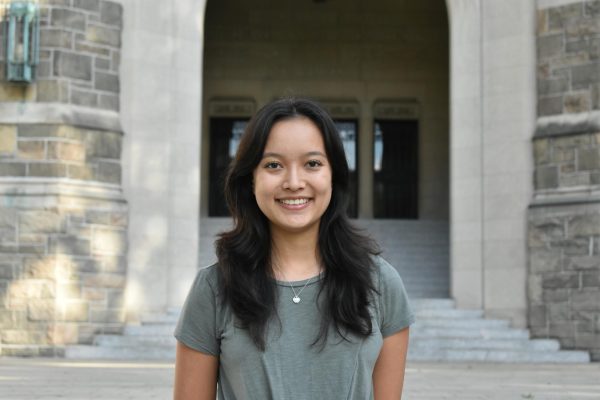
Emma Kim is a junior from Pittsburgh. She is double majoring in economics and English. She started as a contributing writer for news in her freshman year...


